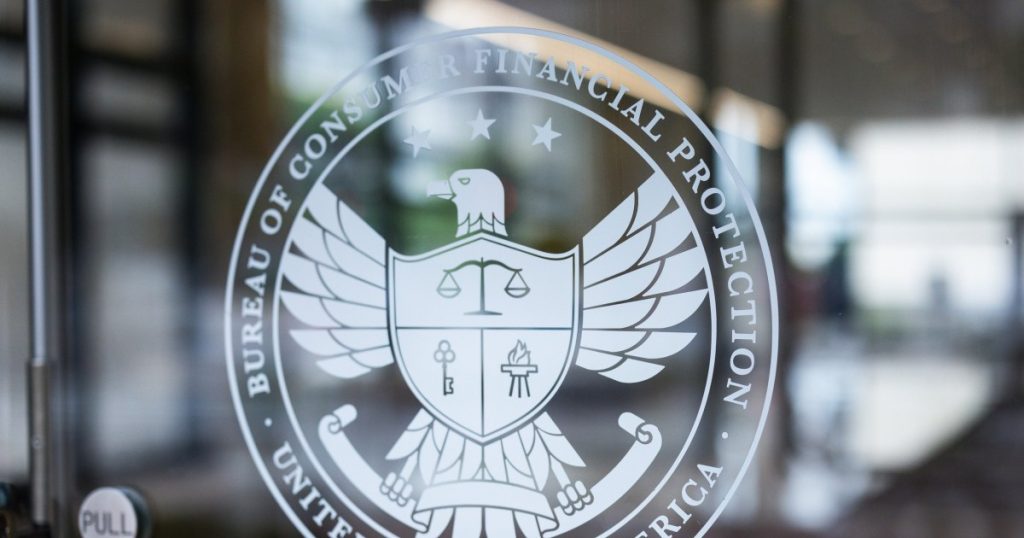Turmoil at the CFPB: Union FILES Lawsuits Against Acting Director Russell Vought
The Consumer Financial Protection Bureau (CFPB) is facing unprecedented turmoil after its acting director, Russell Vought, issued a series of directives effectively halting much of the bureau’s operations. The National Treasury Employees Union (NTEU), which represents CFPB employees, filed two lawsuits against Vought on Sunday, seeking to block his directives and prevent the Department of Government Efficiency (DOGE) from accessing employee information. This dramatic escalation follows a chaotic weekend for the CFPB, during which Vought ordered a pause on all supervision, examination, stakeholder engagement, and pending investigations. Employees were also informed that the CFPB headquarters in Washington, D.C., would be closed for the week, according to internal communications obtained by NBC News.
Vought’s Directives Spark Legal and Internal Backlash
In an email sent on Saturday, Vought instructed CFPB employees to "cease all supervision and examination activity," "cease all stakeholder engagement," and pause all ongoing investigations. These directives have drawn sharp criticism from the NTEU, which argued in its legal filings that Vought’s actions are unlawful and must be stopped. The first lawsuit specifically targets Vought’s decision to halt the bureau’s core functions, urging a judge to declare his directives invalid and prevent further attempts to disrupt the CFPB’s work. The second lawsuit focuses on concerns that DOGE-affiliated staffers have been granted access to the bureau’s internal communications system and employee information, which the union claims violates employees’ privacy rights.
Privacy Concerns and Union Pushback
The NTEU’s legal actions underscore the deepening tensions between Vought and the CFPB’s workforce. The union expressed alarm that DOGE-affiliated individuals have been onboarded into the bureau’s internal systems, with Vought reportedly instructing employees to grant these staffers access to all non-classified CFPB systems. The lawsuits argue that allowing DOGE-associated personnel to access employee information poses a significant risk to workers’ privacy. “These employees face irreparable harm to their privacy interests if their employee information is improperly accessed and/or disseminated,” the filings state. Once sensitive personnel data is disclosed, the lawsuits emphasize, the damage cannot be undone. The CFPB’s media team did not immediately respond to requests for comment, likely due to Vought’s directive barring employees from issuing public communications of any kind.
Funding Freeze and Growing Resistance
In addition to halting the bureau’s operations, Vought announced on social media platform X that the CFPB would not be drawing its next round of unappropriated funding from the Federal Reserve. He justified this decision by claiming that the funds were not “reasonably necessary” for the bureau to carry out its duties. This move has been met with fierce resistance from CFPB employees and allies, who argue that Vought’s actions undermine the bureau’s mission to protect consumers. The CFPB union, a chapter of the NTEU, has announced plans to hold a protest outside the bureau’s headquarters on Monday, signaling growing pushback against Vought’s leadership. Meanwhile, prominent figures like Sen. Elizabeth Warren (D-Mass.), a key architect of the CFPB, have condemned Vought’s directives as a giveaway to big banks and corporations, claiming they effectively greenlight financial exploitation of families.
The CFPB’s Role and Legacy Under Fire
The CFPB, established in the wake of the 2008 financial crisis, has long been a target of Republican criticism. Despite this, the bureau has secured over $21 billion in consumer relief since its inception, making it a critical watchdog for American families. Vought’s recent directives, however, have raised concerns that the bureau’s independence and effectiveness are under threat. By halting its investigative and enforcement activities, critics argue that Vought is severely hampering the CFPB’s ability to hold financial institutions accountable and protect vulnerable consumers. As the legal battles unfold, the stakes could not be higher for the future of consumer protection in the United States.
A Broader Political Battle Unfolds
The conflict at the CFPB reflects a larger political struggle over the role of federal agencies in regulating financial markets. While supporters of the CFPB view it as a vital safeguard against corporate abuse, opponents argue that it oversteps its authority and stifles economic growth. Vought’s directives, and the lawsuits challenging them, highlight the deep ideological divisions over how to balance consumer protection with financial industry interests. As the situation continues to unfold, one thing is clear: the outcome of this battle will have far-reaching implications for the CFPB’s mission and the millions of Americans it serves.












